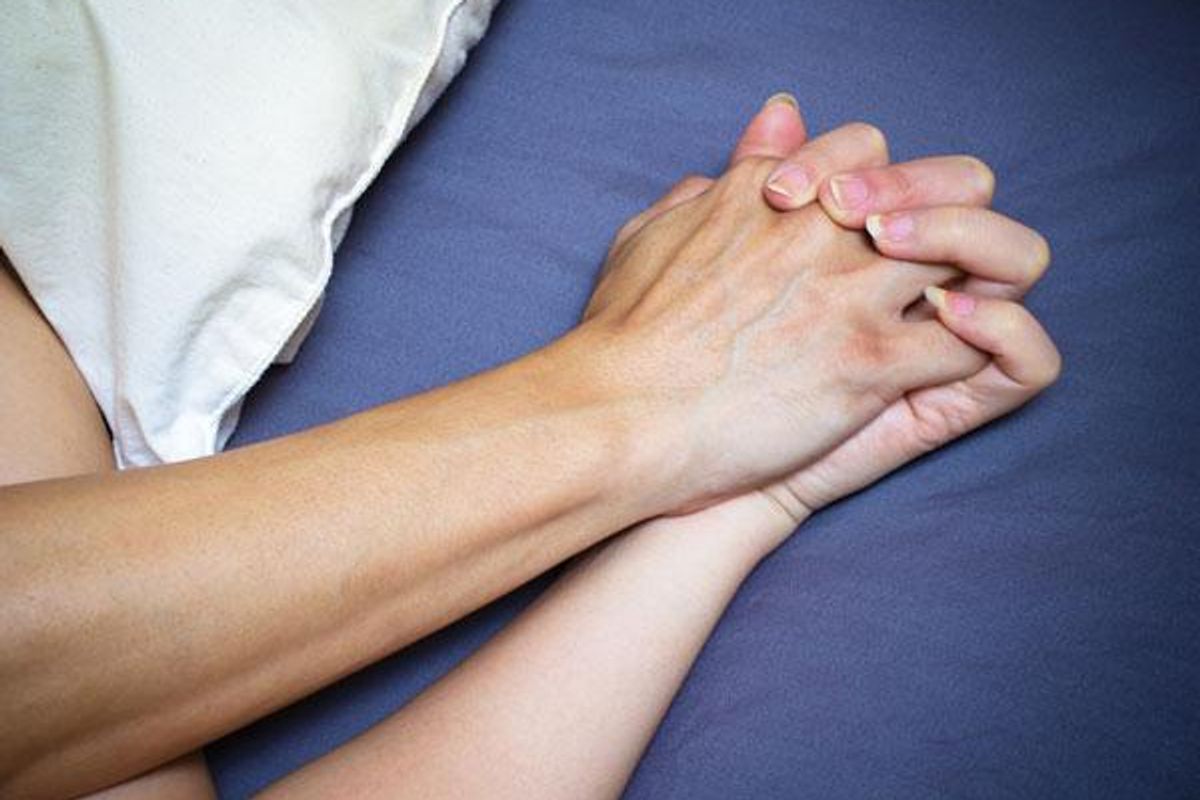When you look into your partner's eyes, what do you see? Hopefully the answer is love, respect and support. Next, answer this question: Do you feel that you deserve those feelings? The answer is important because how you feel about yourself—your self-esteem—plays a major role in your ability to maintain close relationships and enjoy a full sexual relationship.
Simply put, self-esteem is the ability to view yourself as being able to cope with the basic challenges of life and the belief that you deserve to be happy. If you don't think you're worthy of happiness, for instance, you may also think you're unworthy of a full, rich, sensual and sexual life?
There is even such a thing as sexual self-esteem, defined as how you view your sense of self as a sexual being. Do you think that you are sexually appealing? Sexually "competent"? How do you perceive yourself when you're in bed with someone? These all play into your sense of sexual self-esteem.
Ideally, your sexual self-esteem should be high. But if you've been physically or emotionally abused, sexually harassed, insulted or embarrassed, then your sexual self-esteem may have suffered. In fact, the damage can be so great from these negative experiences-even from being called sexually demeaning names-that one researcher called damaged sexual self-esteem a "disability" that can significantly interfere with functioning.
Women with low sexual self-esteem tend to have problems with sex and may be more likely to engage in higher risk sexual behaviors (such as unprotected sex with multiple partners).
If you've never been abused in any way, your sexual self-esteem may still be low for other reasons such as being middle-aged or older in a society that values youth and beauty or being sexually adventurous in a society that expects everyone to be part of a more traditional couple.
In addition, let's talk a moment about how you feel about yourself as a sexually attractive being. Much of this is tied up with how you feel about your body image, particularly your weight. A study out of Duke University found that overweight women were more likely than men to say they didn't feel sexually attractive, didn't want to be seen undressed, had little sexual desire, avoided sexual encounters, had difficulty with sexual performance and didn't enjoy sexual activity.
The whole self-esteem issue also goes in the other direction, with researchers finding that women who have sexual dysfunction also tend to have low self-esteem and lack of sexual desire. The greater their lack of self-esteem, the less likely they were to seek treatment.
So how about this: How about committing to work on your sexual self-esteem and your body image so that you feel empowered and beautiful within yourself no matter what your weight, the color of your hair or what happened in the past?
We're not suggesting you try this on your own. This is an area where we think a good therapist can help. Before you go the therapist route, find one who is licensed in your state, or close enough for you to visit, and ask about their experience in working with women with low sexual self-esteem. If they seem unsure of what that is, you know this is not the therapist for you. And, if you are in a relationship and have found a therapist you trust, you may want to consider bringing your partner. It's important that your low desire not be viewed as just your problem to be "cured," but as an issue the two of you should address as a couple. And one more thing: Check in with your doctor. Sometimes, physical problems can be responsible for a loss of sexual desire.
If you now realize that your sexual self-esteem is low, then we encourage you to work on raising it. Every woman is entitled to a happy, healthy sex life.







